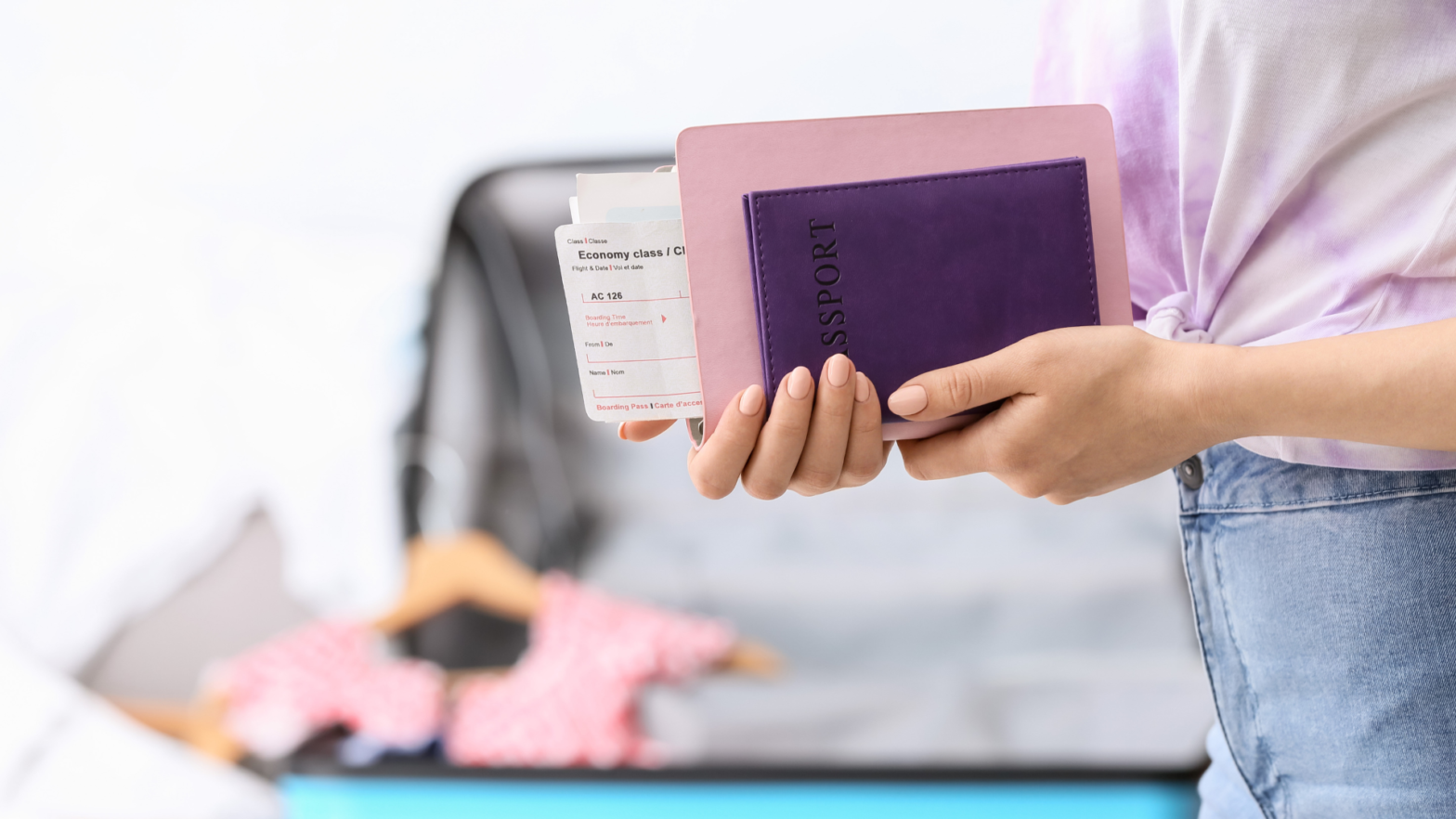Are you tired of the stress and hassle that comes with traveling? One of the best ways to avoid travel-related headaches is by ensuring that you have all the necessary documents on hand. From passports and visas to health certificates and travel insurance, having these documents ready can save you a lot of trouble at immigration checkpoints, airport security, or even in emergencies.
So buckle up as we take a closer look at the top 5 travel documents that every globetrotter should always carry with them!
Why It’s Important to Have Travel Documents on Hand
When discussing international travel, it’s essential to ensure you have a few key documents readily available to guarantee a smooth trip. Your passport is the most obvious requirement – without it, boarding your plane would be impossible! Ensure it’s up to date and will remain valid throughout your journey. If you’re traveling with children, remember that each child needs their own passport.
Keep in mind, these documents are crucial not only for the smooth execution of your trip but also for various financial and legal purposes. Proper documentation can, for instance, facilitate the process of obtaining tax benefits related to international travel expenses.
Moreover, if you plan to purchase property or engage in significant financial transactions abroad, such as exploring holiday homes in Marbella through real estate agencies like Nevado Realty (https://www.nevadomarbella.com), having the necessary paperwork readily available can expedite the process and ensure compliance with local regulations.
Furthermore, documents such as proof of identification, passports, visas, and travel insurance can provide essential assistance in unforeseen circumstances such as medical emergencies or legal issues while traveling internationally. Therefore, ensuring you have all the required documents in order before embarking on your journey can greatly contribute to a hassle-free and successful trip.
You’ll also need proof of travel insurance. This is important in case of any unforeseen medical emergencies or accidents while you’re away from home. Most countries require that you have some form of travel insurance before they allow you to enter.
Your tickets – whether they’re for flights, trains, buses, or anything else – are another essential document. Keep them safe and easily accessible so you don’t have any trouble getting where you need to go.
It’s a good idea to have a copy of your itinerary handy. This can come in handy if you misplace your tickets or need to prove to immigration officials that you’re not overstaying your welcome in a country.
Passport
This is an obvious one, but make sure your passport is up-to-date and easily accessible. Keep it in a safe place where you can grab it quickly if you need to head to the airport on short notice.
Travel documents
These can include visas, tickets (or copies of your electronic tickets), hotel reservation confirmations, proof of travel insurance, and more. Create a spreadsheet or use an app like TripIt to keep track of all your documents so you don’t have to search through piles of paper when you need them. Also, if you’re planning any activities abroad, like diving or trekking, make sure to bring any relevant certifications with you.
Money
Cash is still king in many countries around the world. Bring a mix of small and large bills in the local currency so you can pay for items both big and small without needing to exchange money every time. If possible, get some cash before you leave so that you don’t have to worry about finding an ATM or exchange desk at the airport. It’s also a good idea to bring a debit card and/or credit card just in case you need it. Make sure that these cards are accepted in the country you’re visiting – not all countries accept all cards! This can be better understood with the help of an example.
Say that you are travelling to Puerto Vallarta, Mexico. Upon arrival at the airport, you may need to pay for the Puerto Vallarta Airport Transportation, whether it’s a taxi, shuttle, or private car service. Having a mix of small and large bills in the local currency (Mexican pesos) ensures that you can easily pay for your conveyance without needing to exchange money or worry about finding an ATM at the airport. Additionally, some transportation providers may prefer cash payment, especially for smaller transactions or tips, making it convenient to have pesos readily available. While it’s also advisable to have a debit or credit card as a backup, having cash on hand can streamline the process and ensure a smooth start to your journey.
Clothing
The type of clothing you bring will depend on where you’re going and what type of activities you plan on doing while there. Always check the weather forecast for your destination before
Driver’s License
If you’re going to be doing any driving on your trip, whether it’s renting a car or just getting around by taxi, you’ll need a valid driver’s license. If you’re from the United States, your U.S. driver’s license will work in most countries. However, there are a few exceptions, so it’s always best to check before you go. If your trip is going to take you to Canada, Mexico, or Europe, an International Driving Permit (IDP) is recommended. You can apply for an IDP through AAA or the National Automobile Club.
Credit Card and Cash
If you’re like most people, you probably use a credit or debit card for the majority of your purchases. However, when traveling, it’s always a good idea to have some cash on hand as well. There are many reasons for this, but the main one is that you never know when you’ll need it.
For example, let’s say you’re in a foreign country and you want to take a taxi. If the driver doesn’t accept credit cards, then you’ll be out of luck unless you have cash. The same goes for small vendors and shops who may not have the means to process card payments.
It’s also worth noting that in some countries, cash is still king. This is especially true in places where the infrastructure isn’t as developed or where corruption is rampant. In these cases, it’s often easier (and safer) to pay with cash rather than cards.
When it comes to determining how much cash to bring on your trip, it depends on several factors, such as the destination country or city and the duration of your stay. A good rule of thumb is to carry enough cash to cover all your basic expenses for at least a few days, including food, transportation, and lodging. Additionally, if you have a general idea of your planned itinerary during the trip, it’s wise to budget for those activities as well, just in case. This could include attending a long-awaited musical concert featuring one of your favorite artists or indulging in your inner geek by visiting a city known for its nerd culture attractions. If the latter is your motivation, you may want to consider planning a trip filled with geek-friendly Los Angeles activities to fully immerse yourself in the city’s vibrant geek scene.
And finally, don’t forget to inform your bank about your travel plans before you leave. This will help ensure that your card works properly overseas and that you don’t run into any unpleasant surprises while away from home.
Insurance Cards
When you’re packing for a trip, it’s important to make sure you have all the right documents. At the top of the list should be your insurance cards. These are essential in case you need medical care while you’re away from home.
Be sure to pack your health insurance card, as well as any cards for travel insurance or other types of coverage you may have. It’s also a good idea to bring along a copy of your policy in case you need to reference it while you’re away.
If you have a pet, don’t forget to pack their insurance information as well. This can be lifesaving if your furry friend gets sick or injured while on vacation with you.
Other Travel Documents to Consider
When planning any kind of international travel, it’s important to have all the right documents in order. In addition to a valid passport, there are a few other travel documents you should always have on hand:
Visas
Depending on your destination(s), you may need to obtain one or more visas before traveling. Make sure to research the visa requirements for each country you plan to visit well in advance of your trip.
International Driver’s License
If you plan on renting a car or driving while abroad, you will need an International Driver’s License. You can obtain one from your local automobile association.
Travel Insurance
This is not technically a document, but it is essential for any international traveler. Make sure you have comprehensive travel insurance that covers medical expenses, lost or stolen belongings, and trip cancellation/interruption.
Travel documents are essential for any trip, whether it’s a short vacation or an extended stay abroad. Making sure you always have the top 5 travel documents on hand can save you time and headaches when trying to get through customs or immigration in a foreign country.
Keep these items easily accessible so that you can quickly grab them when needed. With these five important pieces of documentation, your travels will be much smoother and stress-free!

